“Citation” means a mention, quotation, or reference to something. Similarly, local citations mean mentioning or quoting a local business's name, address, phone number, and website. These...
How To Do Local Citations For Your Small Business
-
9 mins read
-
January 15, 2024
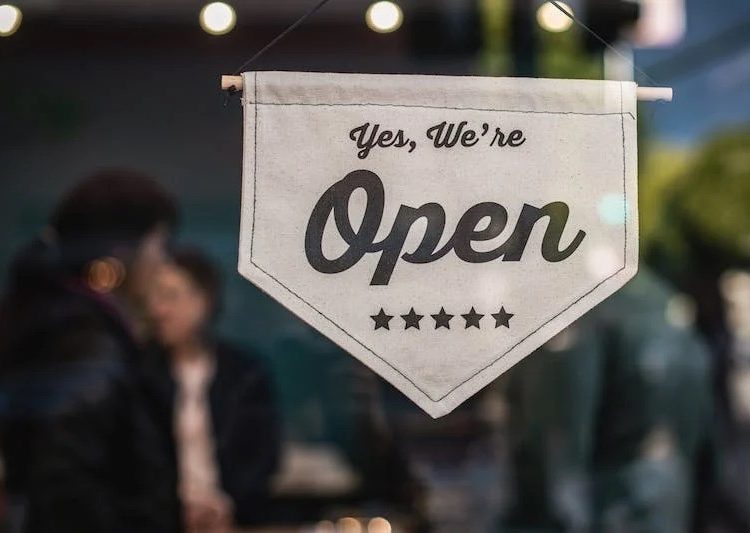
“Citation” means a mention, quotation, or reference to something.
Similarly, local citations mean mentioning or quoting a local business’s name, address, phone number, and website. These mentions can appear on public listings, business directories, social networks, or popular online news outlets.
Here’s an example of a local citation on the Foursquare city guide.
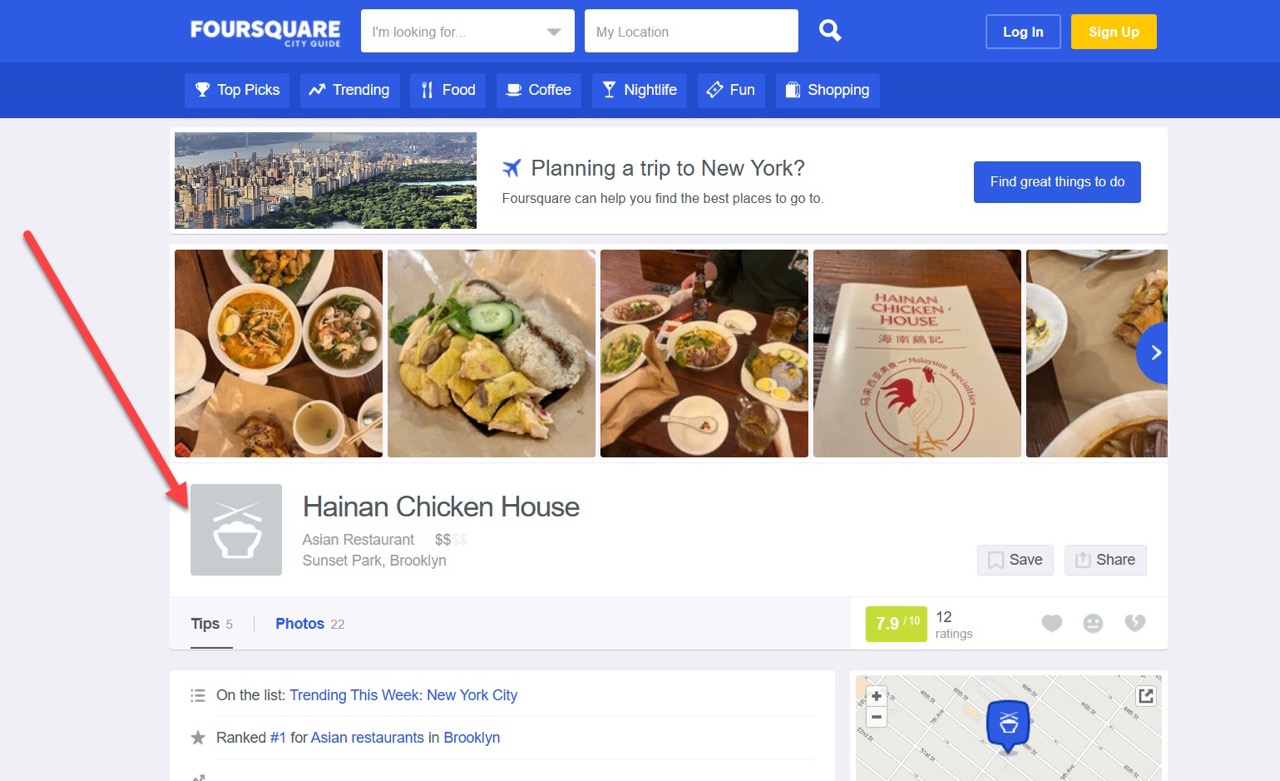
This kind of citation helps people discover your local business online and enables them to contact you or locate your physical address.
But that’s not all.
In search engine optimization (SEO), local citations play a critical role in getting local businesses to rank high on the top pages of search engines (SERP).
This means local citation can boost your SEO efforts and get your business to reach millions of people in a target location. So, if you are not maximizing local citations already, you are missing out on a huge opportunity.
This article will show you how to succesfully do local citations for your small business.
But before we get into the HOW, let’s talk about the WHY.
Why Are Local Citations Important?
There are two significant reasons why every small business shouldn’t ignore local citations.
Reason #1: To Rank Higher on Search Engine Result Pages for Local Search Queries
Local citations will make your business appear more in online local searches for what you offer.
A survey by Moz suggested that citations are the fifth most crucial signal that helps businesses rank higher for local queries. Even better if the citations have a link that points people to your business’ website.
Hence, such backlinks will make Google and other search engines rank your website for searches relating to your business.
Here’s an example of local plumbing businesses currently ranking on Google for the search query “plumbing services in New York.”

Reason #2: To Help People Discover Your Business
Many people like to find local businesses in public directories like the Yellow Pages, Yelp, Google My Business, and the Chamber of Commerce.
Having your business listed on these directories will help people find you through various online mediums.
In the screenshot below, some local tilers listed on Google Business quickly popped up when we searched for “tilers in Wisconsin.”

Similarly, when we searched for the same thing on Yelp, we discovered new local tiling businesses we had never seen before.

You see how in a matter of minutes, we now know four local tilers in Wisconsin, United States.
We can easily contact these four tilers whenever we need tiling services because their business names, phone numbers, addresses, and websites are listed.
Now before we dive into how to do local citations, let’s explain one critical point – the types of local citations out there.
Types of Local Citations
There are basically two types of local citations online. Here’s a simple explanation of both.
1. Unstructured Citations
These citations are mainly contextual mentions of a local business. You’ll often find such in a blog post or general posts on a public forum.
In some cases, unstructured citations can appear in a press mention of local businesses.
Here’s an example from a blog post reviewing the best cafes in London:

The above blog post reviewed a couple of great cafes in London and added their physical addresses, websites, and contact info.
Also, there are other instances where such a citation only highlights the business address or phone number without mentioning the website or additional info.
That’s why they are called “unstructured” citations.
2. Structured Citations
As the name implies, structured citations always follow a standard.
You’ll often see the citations displayed in the same format for every company. At the bare minimum, a structured citation would list the business name, address, and phone number (NAP).
These kinds of citations mostly appear on public directories and social media profiles. The example below shows three businesses listed in similar ways on Yelp.
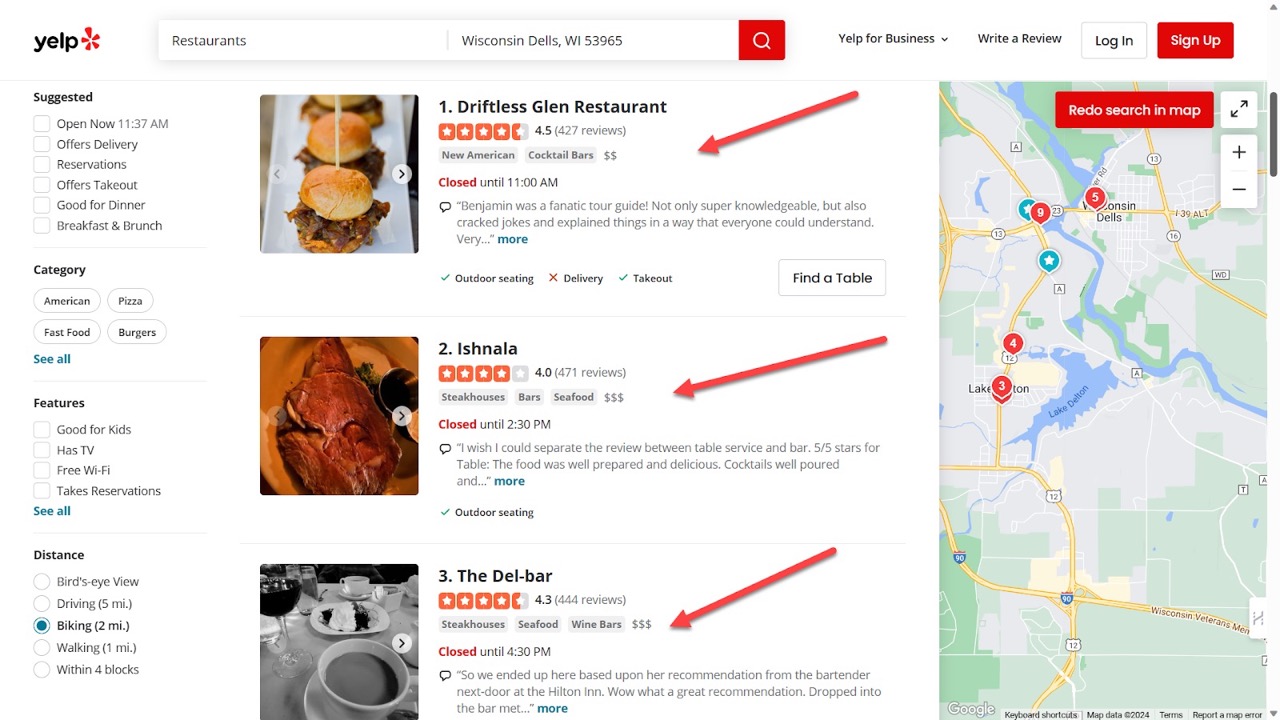
Now that we’ve explained what local citations mean, let’s dive into how you can get citations for your own business.
How To Do Local Citations for Your Small Business
To begin with, let’s clarify that both structured and unstructured types of citations are good for your business.
And by that, we mean …

But don’t get too carried away; quality matters over quantity when it comes to local citations.
Follow the steps below to get high-quality local citations for your small business.
Step 1: Get Cited on Top Data Aggregators
If you search online, you’ll find thousands of business directories with helpful information on various local businesses.
Which begs the question… how do they manage to gather such huge amounts of information?
If they keep waiting for local business owners to submit the data, there will be many gaps, and some people will take ages before submitting theirs.
The secret solution lies with some companies called “data aggregators.”
Yes, these aggregators collect various businesses’ names, addresses, and phone numbers (NAP) and distribute them to hundreds of directory websites.
Now, your goal is to get your business information submitted to these aggregators.
If your business is in the United States, focus on top aggregators like:
To submit your business information, visit the website of an aggregator company and search for your business name, phone number, or address.
Here’s a demonstration for Data Axle local listings:

If they have an existing listing for your business, go ahead and claim it.
But if no existing record appears, contact the aggregator company to make a fresh submission of your NAP information. In most cases, fresh submissions are free, but you’ll need to contact the aggregator company via email or phone.
See the screenshot below showing how to contact Data Axle company for a fresh submission.

By submitting your information to popular aggregators, your business data will end up getting cited in many places.
Step 2: Submit Your Business Info on Industry Directories
Aside from claiming your spot with aggregators, you should also target industry-specific directories and location-specific business directories.
Examples of such directories include TripAdvisor, Zillow, Findlaw, eLocal USA, etc.
- If you are an attorney or you run a law firm, consider listing on Findlaw.com.
- If you run own a hotel or restaurant, list it on TripAdvisor, and Zillow.
- If you’re a realtor, consider listing your business on realtor.com.
Meanwhile, a website like eLocal USA is geo-specific and only meant for listing local businesses in the U.S.
You can find more of these types of directories by simply doing a Google search using queries like:
- [location] business listings – e.g. Canada business listings
- [industry] business listings – e.g., Realtor business listings
Google will show you valuable results, like in the image below.

Step 3: Get Listed on Other Public Directories
After submitting your business data on industry-specific sites, take a step further to get listed on other popular public directories like:
While there are other such directories online, you don’t have to get listed on all. Just focus on the most popular ones listed above.
For instance, Google gets over 8.5 billion searches daily, and 46% of them have local intent. That means setting up a Google Business Profile will expose your local business to millions of potential customers daily.
If you don’t yet have a Google Business Profile, follow these steps to set up one right now.
- Visit the Google Business page.
- Click on the “Manage Now” button in the top right corner.

- Sign In with your Google account (it’s better to have a separate Google account for your business).

- After successfully signing in with a Google account, click the “Add Business” button.
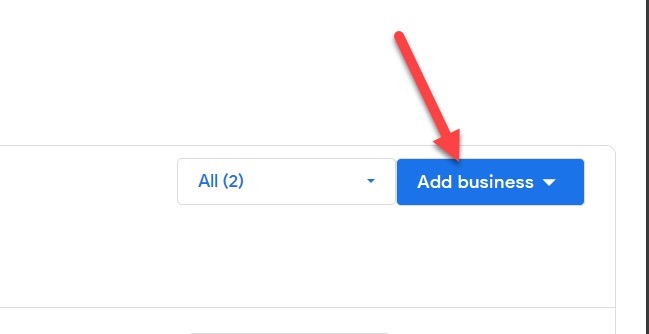
- Fill in the name of your business, select the correct category, and enter every other important information needed.

- Select the option to enter the location of your business manually (it’s the easiest option).

- Enter the correct address and location of your small business.

- Enter the website of your business and the correct contact information.

- Select the correct business open hours and days.

And that’s it. Just wait for Google to verify your business and afterward list your business for free.
Step 4: Hunt After Unstructured Citations
When you’ve secured many structured citations for your business, your next move is to go after unstructured citations.
This type of citation usually appears in online reviews, press mentions, and blog posts relating to your services. And this means unstructured citations don’t always come easy.
Someone who knows about your business would have to mention you in their review, blog post, or press feature.
Something like this:
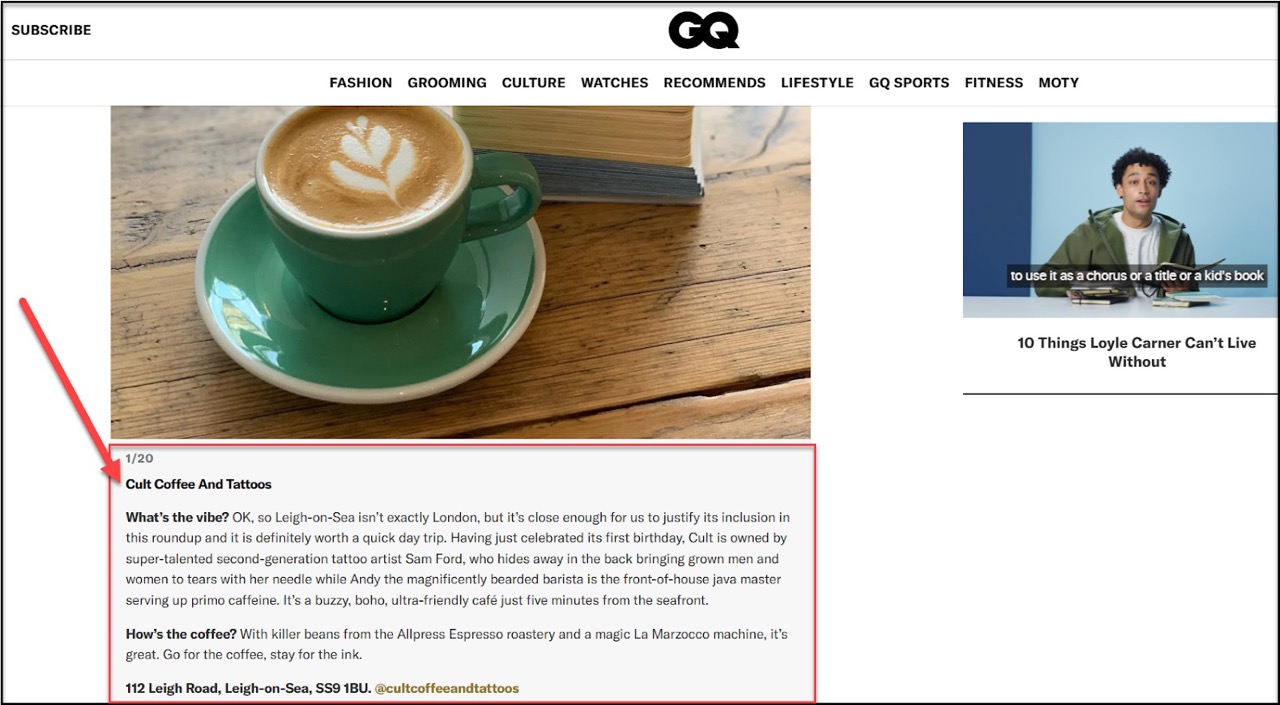
But instead of waiting for random press websites and blogs to mention your business, reach out to them. Find a blog that writes about products or services and speak with them about partnerships.
You can offer them a free product or service so that they can review it first-hand and mention your business in their subsequent publications.
Another way to get unstructured citations is by getting listed on supplier pages. Contact your suppliers and ask if they can mention your business on their website as one of the people they supply.
See the example below.
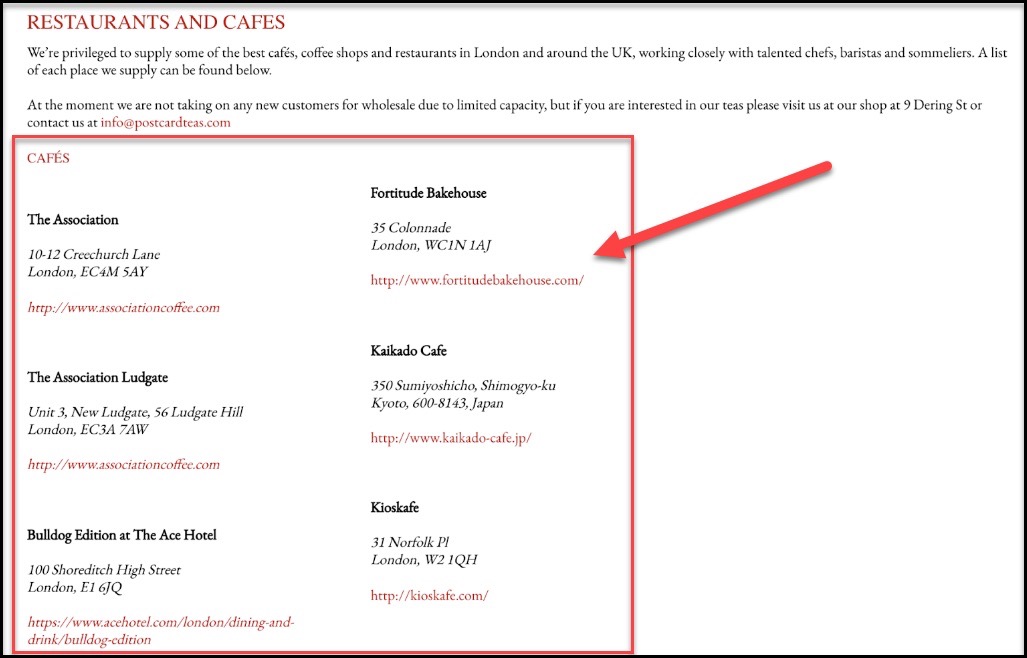
Image source: Postcard Teas
And if you want press mentions, you can use the free Help A Reporter Out (HARO) service.
This HARO service will help you connect with journalists sourcing for upcoming stories they can write about. Simply visit the website and click the “I’m a Source” button, as shown in the screenshot below.
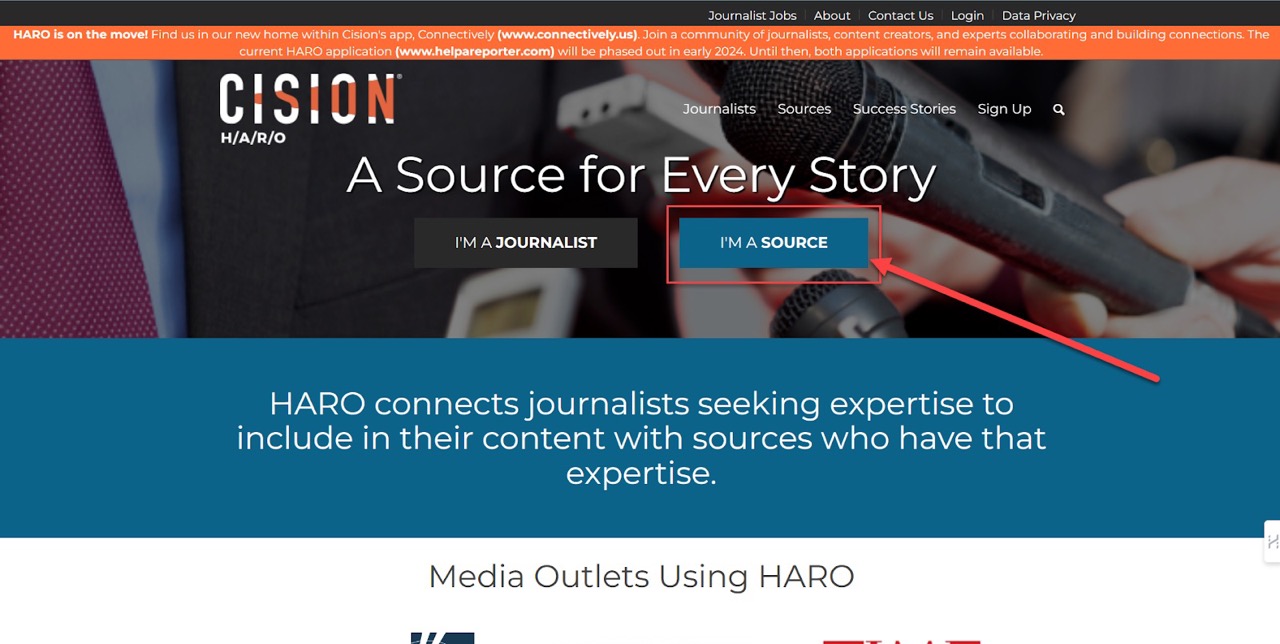
Here’s a brief explanation of how HARO works.

Sign up to get daily emails from journalists working on their next press feature.
The journalists will mostly ask questions and expect you to supply them with authentic answers that they can use.
If any of your answers get used in an upcoming article, your business will be cited in the publication.
It might take a while before you get your first mention, but this method works well for getting high-quality unstructured citations and backlinks.
Pro Tip: Consistency Matters in Local Citations
No one likes being confused by inconsistent and inaccurate information.
You don’t want a situation where your business’s phone number on Yelp differs from the one on your Google business profile.
It’s even worse if the address information has errors and inconsistencies. How can the same local business have contrasting contact details and address information on various public directories?
A BrightLocal study in 2018 showed that 80% of consumers quickly lose trust in companies with inconsistent names or contact details.
Avoid this common error by frequently checking your existing citations to see if there are inconsistencies. Once a month, look at your business data on top aggregators’ websites and on public directories like Google Business.
If you find errors, correct them to ensure the accuracy and consistency of your business information in all citations.
Conclusion on Doing Local Citations for Small Businesses
Local citations boost your SEO efforts and give your business broader exposure.
And the good thing about citations is that they are mostly free to get. However, it can be quite overwhelming if you intend to do local citations by yourself.
You have to seek citation opportunities in popular business directories, public listings, press mentions, online blogs, and social media pages. Not to mention other gated techniques you won’t find easily.
If that feels like a lot of work for you, contact us at Inscribe, and we’ll get you the best citations to elevate your small business.
